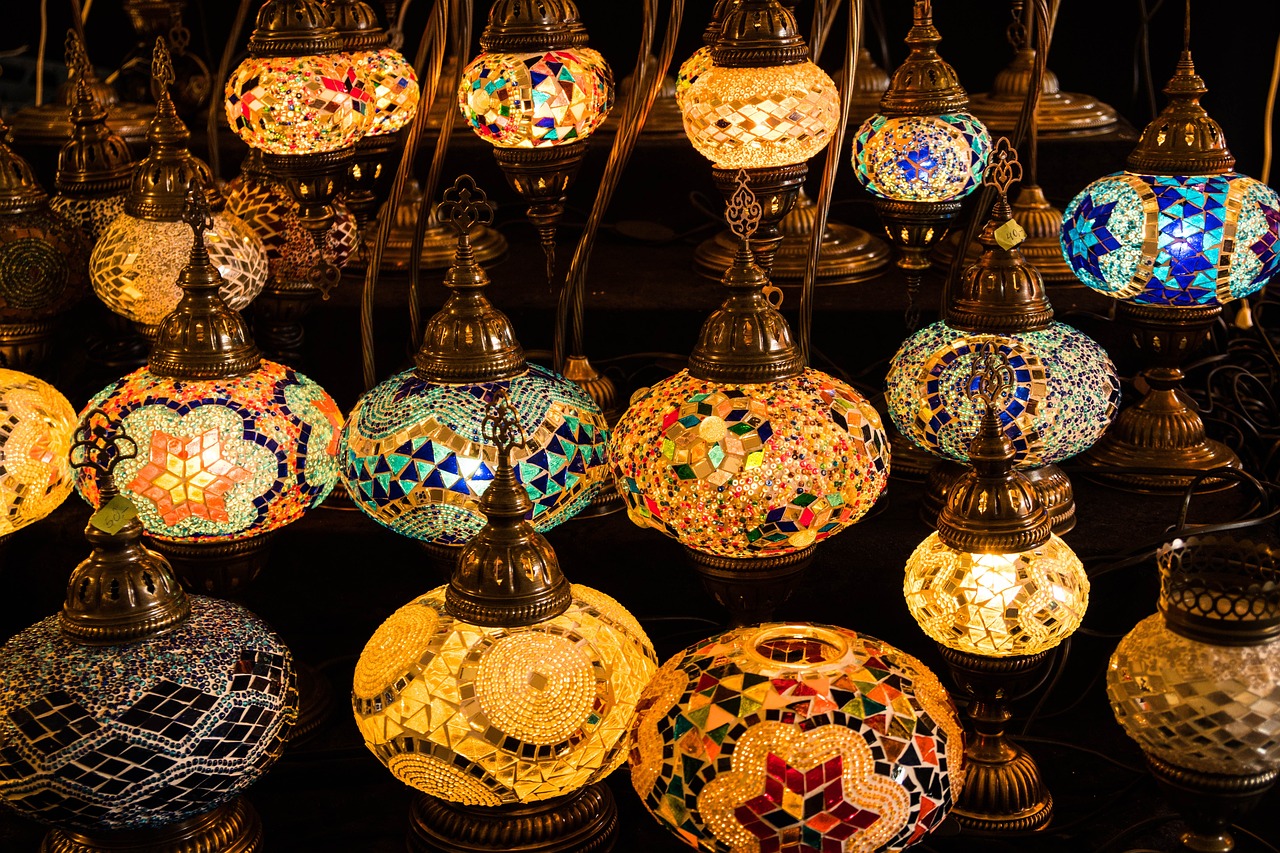Turkey Video
Cultural Etiquette: Doing Business in Turkey
Turkey is a country with a rich cultural heritage and a unique blend of Eastern and Western influences. When doing business in Turkey, it is important to be aware of the cultural etiquette to ensure successful and respectful interactions. This article provides a comprehensive guide to navigating the cultural nuances of doing business in Turkey.
Section 1: Greetings and Communication
In Turkey, greetings play an essential role in establishing business relationships. When meeting someone for the first time, it is customary to greet them with a firm handshake while maintaining eye contact. Turkish people appreciate formalities, so it is advisable to address individuals using their professional titles unless otherwise indicated.
- Use of Titles: Address individuals using their titles, such as “Mr.” or “Mrs.” followed by their last name. Once a relationship is established, you may be invited to use first names.
- Respect Personal Space: Turkish people value personal space, so it is important to maintain a comfortable distance during conversations.
- Non-Verbal Communication: Pay attention to non-verbal cues, as they can convey important messages. For example, nodding of the head may indicate understanding or agreement.
- Eye Contact: Maintaining eye contact during conversations is seen as a sign of respect and attentiveness.
Section 2: Business Meetings and Negotiations
Business meetings in Turkey are typically formal affairs that follow a hierarchical structure. It is important to plan meetings well in advance and arrive on time. Punctuality is highly valued in Turkish culture, and being late may be perceived as disrespectful.
- Meeting Agenda: Provide a detailed agenda in advance to ensure that all participants are well-prepared.
- Formal Introductions: Begin the meeting with formal introductions, allowing each participant to present themselves and their role in the company.
- Building Trust: Establishing trust is crucial in Turkish business culture. Building personal relationships and demonstrating sincerity are key to gaining trust.
- Negotiation Style: Turkish negotiators tend to be assertive and may engage in lively discussions. Remain calm, respectful, and patient during negotiations.
Section 3: Dress Code and Appearance
The way you dress and present yourself is important when doing business in Turkey. The dress code in the business environment is generally conservative, reflecting the country’s Islamic traditions.
- Formal Attire: Men should wear suits and ties, while women should opt for modest and professional attire.
- Avoid Revealing Clothing: Both men and women should avoid revealing or overly casual clothing in business settings.
- Conservative Dress for Women: Women should consider wearing long skirts or dresses, and avoid clothing that exposes their shoulders or legs.
- Well-Groomed Appearance: Maintaining a neat and professional appearance is important in Turkish business culture.
Turkey Image 1:

Section 4: Gift Giving
Gift giving is a common practice in Turkish business culture, especially during special occasions or when visiting someone’s home. When presenting a gift, it is important to show thoughtfulness and respect for the recipient’s culture.
- Appropriate Gifts: Choose gifts that reflect your recipient’s interests or are representative of your own culture.
- Avoid Expensive Gifts: Excessive or extravagant gifts may be seen as inappropriate or even offensive.
- Presenting the Gift: Offer the gift with both hands as a sign of respect, and expect the recipient to open it later in private.
- Gifts for Hosts: If invited to someone’s home, it is customary to bring a small gift for the host or hostess, such as flowers or chocolates.
Section 5: Dining Etiquette
Business meals are common in Turkey and provide an opportunity to build relationships and discuss business matters in a more relaxed setting. Understanding dining etiquette is crucial to making a positive impression.
- Seating Arrangements: Wait to be shown where to sit, as seating arrangements may follow a hierarchical structure.
- Table Manners: Use utensils while eating, and keep your hands visible above the table.
- Toast Etiquette: Wait for the host to make the first toast before taking a sip of your drink.
- Compliment the Food: Show appreciation for the meal by complimenting the host or chef.
Section 6: Business Cards
Exchanging business cards is an important ritual in Turkish business culture. It is advisable to have your business cards translated into Turkish on one side, with English on the other.
- Presentation of Business Cards: Offer your business card with both hands, ensuring that the Turkish side is facing the recipient.
- Respect for Business Cards: Treat received business cards with respect, examining them briefly before carefully placing them on the table in front of you.
- Language on Business Cards: Ensure that your business cards include accurate and up-to-date contact information, including your full name, title, and company details.
- Follow-Up: After a meeting, send a follow-up email or thank-you note to express your appreciation and reiterate your interest in further collaboration.
Turkey Image 2:

Section 7: Punctuality and Time Management
Punctuality is highly valued in Turkish business culture. Arriving late to meetings or appointments may be seen as disrespectful or unprofessional.
- Plan for Traffic: Take into account the traffic conditions in the city and plan your journey accordingly to ensure punctuality.
- Notify in Advance: If you anticipate being late, it is considered polite to inform the other party in advance.
- Flexible Time Perception: While punctuality is important, Turkish business culture may have a more relaxed approach to time management. Be prepared for potential delays or schedule changes.
- Respect for Others’ Time: Show respect for others’ time by being prompt and efficient during meetings.
Section 8: Business Etiquette in Religious Contexts
Turkey is a predominantly Muslim country, and it is important to be mindful of religious customs and sensitivities in business settings.
- Observance of Prayer Times: Be aware of the five daily Muslim prayer times and avoid scheduling meetings during these periods if possible.
- Ramadan Considerations: During the holy month of Ramadan, Muslims fast from sunrise to sunset. It is respectful to avoid scheduling business lunches or events during this time.
- Dress Modestly: When visiting religious sites or attending events with religious significance, dress modestly and respectfully.
- Respect for Religious Practices: Show respect for religious practices and customs, such as removing shoes when entering a mosque or participating in prayer rituals.
Section 9: Business Etiquette Outside of Major Cities
While the major cities in Turkey may have a more cosmopolitan and Westernized business culture, it is essential to adapt your approach when conducting business outside of these urban centers.
- Conservative Dress: Outside of major cities, the dress code may be more conservative. Dress modestly and professionally to show respect for local customs.
- Relationship Building: Building personal relationships and establishing trust are even more critical in smaller towns and rural areas.
- Adapt to Local Customs: Be open-minded and adaptable to local customs and traditions, which may differ from those in urban areas.
- Language Considerations: English proficiency may be lower outside of major cities, so consider hiring a local interpreter to facilitate communication.
Turkey Image 3:

Section 10: Business Etiquette Tips for Women
Women conducting business in Turkey may encounter unique challenges. However, with cultural sensitivity and awareness, women can navigate the business landscape successfully.
- Professional Attire: Dress professionally and modestly to command respect and avoid unwanted attention.
- Assertiveness and Confidence: Be assertive and confident in expressing your ideas and opinions during meetings.
- Building Networks: Participate in professional networks and events to expand your connections and establish credibility.
- Work-Life Balance: Balancing work and personal life is important in Turkish culture. Find ways to prioritize your well-being while maintaining professional commitments.
Section 11: Business Etiquette in Social Settings
Business relationships in Turkey often extend beyond the office, and socializing with colleagues and clients is common. Understanding social etiquette is crucial to building strong professional connections.
- Invitations: Accept invitations to social events whenever possible, as they provide an opportunity to strengthen relationships.
- Gifts for Hosts: When invited to someone’s home, consider bringing a small gift as a token of appreciation.
- Engage in Small Talk: Engage in polite conversation before transitioning into business matters.
- Respect for Elders: Show respect for older individuals by addressing them with their professional titles and deferring to their opinions.
Section 12: Conclusion
Doing business in Turkey requires a deep understanding and appreciation of the country’s rich cultural heritage. By adhering to the cultural etiquette outlined in this article, you can build strong and successful business relationships in Turkey.
References
– Invest in Turkey: invest.gov.tr
– Turkish Cultural Foundation: turkishculture.org
– Turkey Ministry of Culture and Tourism: kultur.gov.tr
– Turkish Embassy: turkey.org.tr


